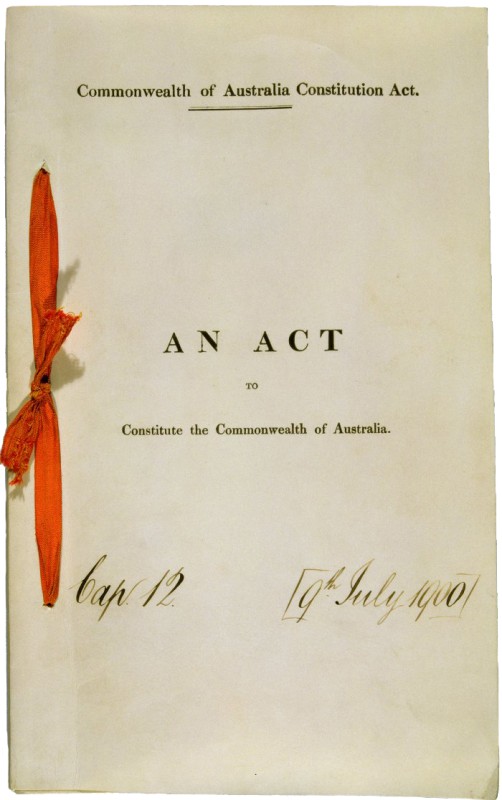Can a Minister remain in their role while not a member of parliament? Section 64 of the constitution seems to imply they can for three months.

Commonwealth of Australia Constitution Act, 1900: Original Public Record Copy (1900).
Parliament House Art Collection, Art Services Parliament House
Commonwealth of Australia Constitution Act, 1900: Original Public Record Copy (1900).

Parliament House Art Collection, Art Services Parliament House
Description
This image shows the front page of the original public record copy of the Commonwealth of Australia Constitution Act 1900.
Permission for publication must be sought from Parliament House Art Collection. Contact DPS Art Services, phone: 02 62775034 or 02 62775123
You are right John. Section 64 of the Australian Constitution gives ministers 3 months to gain a seat in either the Senate or the House of Representatives before they would have to give up their job.
The origins of this rule date back to Federation. On 1 January 1901, ministers were appointed by the Governor-General. These ministers advised the Governor-General during the transition to the new federal system of government, including on how the first election should be run. When these ministers were appointed, there was no federal parliament yet – so they couldn’t be members of it! But after the first election (which took place in March 1901) any minister who wanted to stay in the role must be, or become, a member of parliament within 3 months.
This rule helps to ensure accountability. As elected officials, ministers are expected to explain their actions and respond to questions in parliament, where the public can observe them. This promotes transparency and responsible government.
Section 64 also supports stable and uninterrupted government operations – especially during times of political transition or unexpected vacancies. This rule ensures that there is no sudden gap in leadership or administration if a minister loses their seat.